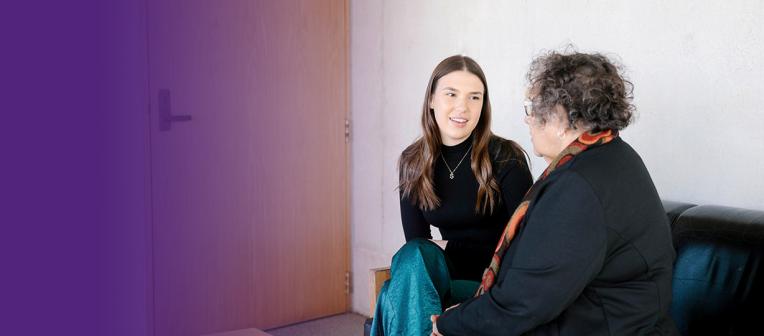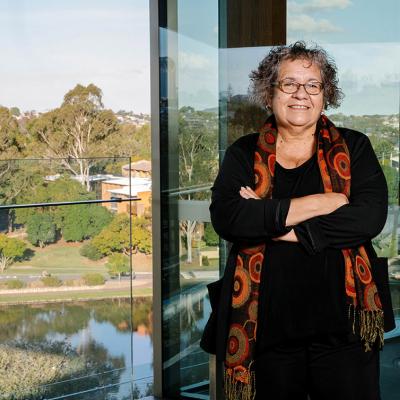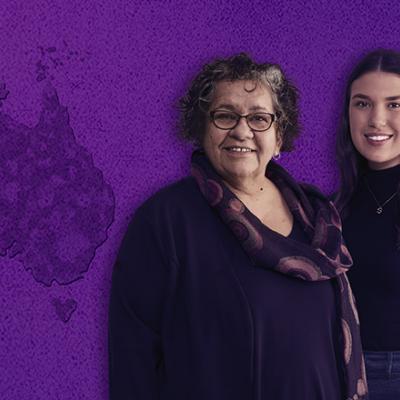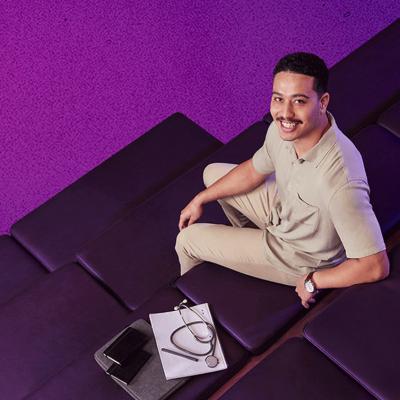Considering taking Indigenous studies at university? You may have lots of questions. We're here to help you find answers.
- What’s it really like to do Indigenous studies at UQ?
- Why is Indigenous studies important?
- What's unique about Indigenous studies at UQ?
- How can an Aboriginal and Torres Strait Islander Studies major help you in your future career?
We've interviewed a UQ student and academic to find out. Tracey Bunda is a Ngugi and Wakka Wakka woman, and Professor of Indigenous Education at UQ. Sylvia Stuen-Parker studies the Aboriginal and Torres Strait Islander Studies major as part of a Bachelor of Arts / Bachelor of Laws. They’ve teamed up to answer some of your questions and uncover how UQ can give you the skills you need to face the future, even when you don't know exactly what the future will look like.
Let's find out if Indigenous studies sounds like a good match for you.
What is it about UQ’s approach that makes us the most employable graduates in the state?
Tracey: UQ has a real commitment to excellence. All our students get a very thorough, deep education. There are co-curricular activities outside of the classroom that help you expand as a student, and you can apply them later.
What’s the most unexpected thing you’ve been happy to discover at UQ?
Sylvia: That’s a fun question. I remember one time I was sitting in the Great Court, and somehow the Wi-Fi was working out there. I mean, I guess that’s a millennial answer! But it’s nice how you can sit anywhere and do your work, even if it’s outside by the lakes.
Tracey: Or a beanbag in the Great Court.
Sylvia: That’s a good idea! So yeah, great internet connection.
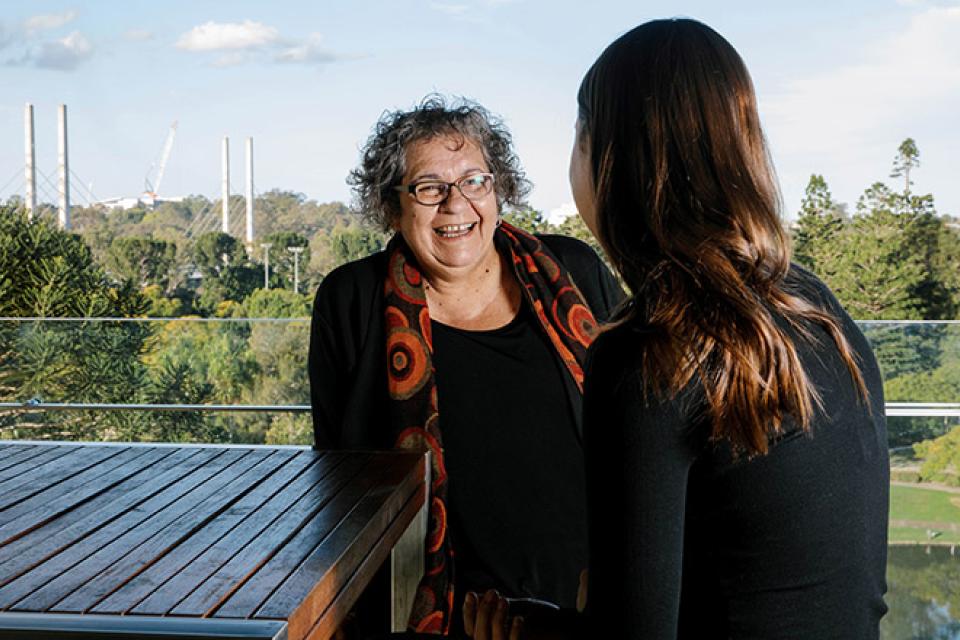
How do you prepare students for the future when we don’t know what the future looks like?
Tracey: Oh my goodness, that’s the hardest question! What we want to be able to do is ensure our students have numerous skills they can apply to any workplace and any context. So, hopefully that’s what we’re achieving.
What are the most valuable skills you’ve learnt as part of your degree?
Sylvia: I’d say probably learning from your peers. In tutorials especially, that’s where you get a lot of different perspectives and everything – and the professors and everyone are giving you the starting point. I think the best kind of learning is group discussion.
Tracey: Yeah, students are the best teachers!
What makes a good student, and are they the same things that make a good job candidate?
Tracey: Good students turn up to classes!
Sylvia: True! And good employees probably turn up to work.
Tracey: I think it’s if you apply yourself to your study and enjoy yourself while you are studying as well. And you need to understand what kind of learner you are so you can find the best approach for you.
You might be somebody who likes group work, so that’s the best learning situation for you. Or you might be someone who gets confused when other people get in your head, and so you might just need to bunker down in the library. I think knowing that really helps you work out who you are as a student, and you need to be able to translate that into the workplace as well.
Sylvia: And ask questions as well, like learning from each other.
Tracey: You’ll be surprised how many people in class are thinking exactly the same thing.
Sylvia: Tutorials offer a really good opportunity to ask those questions.
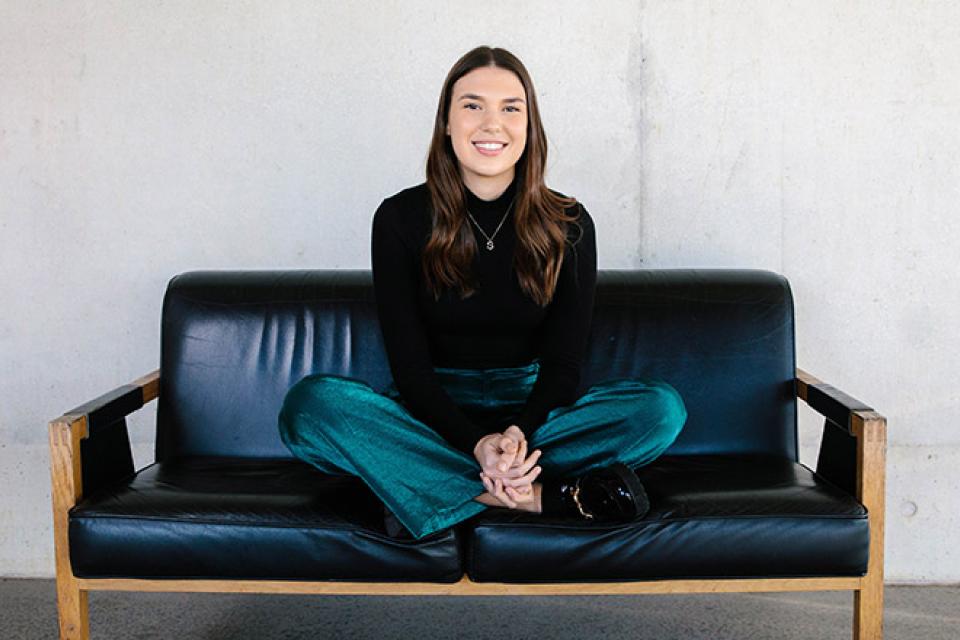
What do you think employers in your industry are looking for and how has UQ equipped you with these skills?
Sylvia: I do think my research skills have gotten a lot better at UQ, to be honest. There are lots of online libraries and databases and such that they really make sure you know how to navigate from the start, which is good. I can already notice at work that I can apply those skills, and that’s just in a little casual admin position, so that’s always a good sign.
Tracey: And you need those skills if you’re going to go out there and be this fabulous uber lawyer.
Sylvia: Exactly!
What is unique about Indigenous studies at UQ?
Tracey: That it’s Indigenous studies! One of the things that I’m coming to understand more clearly is that there are not that many Indigenous studies within the school situation. That makes me very sad. I wish there was – particularly for our Indigenous students, but for all students.
I think one of the other unique things is that you will have Indigenous lecturers or members of the community engaging with you in the classes. And, you know, I would be the first to admit that we are practising and taking on board students’ comments. We’re trying to make Indigenous studies as relevant as possible for our students, and to teach it in such an enjoyable way that there’s real positive impact for the students as well as for the teaching staff.
Sylvia: For sure. I think learning about different ways of Indigenous knowing and knowledges adds so much complexity to all different sorts of subjects, which is great.
Give us some examples of career opportunities graduates will have.
Tracey: The Indigenous studies program is a major, and usually our students will couple that with other studies within their degree of choice.
So, for example, if you were doing the Indigenous studies major but you were also doing communication, then that could take you into a public service space where you’re communicating key ideas and information. But it could just as well take you into the online space, where you’re reporting Indigenous matters within the community.
You could also couple it with your health qualification so, if you’re a non-Indigenous person, you become more informed, culturally competent and culturally intelligent about being able to provide a service to Aboriginal and Torres Strait Islander communities.
If you’re coupling it with, say, studies in anthropology or studies in archaeology, then you are working shoulder to shoulder with Aboriginal and Torres Strait Islander communities around such things as native title. These are still very prevalent within our communities.
So, there’s lots of variation. It will depend on our students and our courses. I know that’s a real worry for students – what job am I going to get? But when you do couple it with other studies in your degree, you have lots of options available to you.
Aboriginal and Torres Strait Islander Studies is a major in the Bachelor of Arts. Students can take this major when they study a Bachelor of Arts or a dual degree combining arts with another undergraduate program. You may also be able to take some of the courses in Aboriginal and Torres Strait Islander Studies as electives in other degrees.
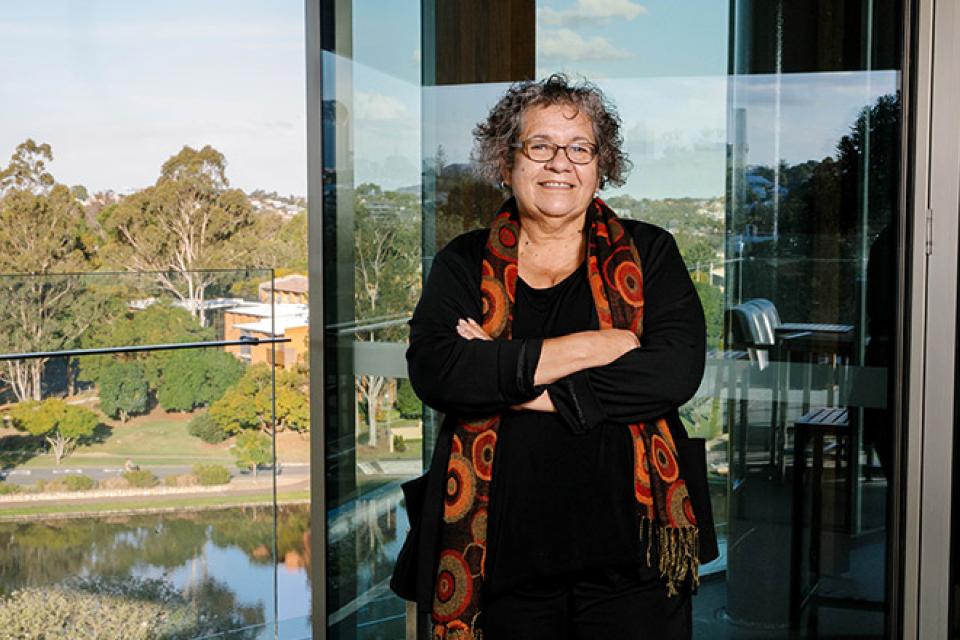
If you could give me one piece of advice that would set me apart as a job candidate, what would it be?
Tracey: I would have to say: prepare. Do not turn up thinking that you know. Read over your application, read over the selection criteria. Try to think of the selection criteria not as a candidate for a job, but as the employer for the job. What kind of questions would they be asking based on that selection criteria?
Do search online to find out as much as you can about the company, organisation or industry. And walk in there with a really positive attitude – so, even if you don’t get the job, you’ve learnt something from that experience.
Explore the Aboriginal and Torres Strait Islander Studies major or discover what it's really like to study other programs at UQ.

